Our project initiative is to broaden the ‘Atisha Interfaith Council Bangladesh’ activities in meaningful and effective ways. The Council is a multi-religious approach to build and equip for faith based actions for advancing inter-religious dialogue & communication, building peace, religious literacy, religion and development , religion and worldviews, understanding nonviolent communication, conflict transformation, building trust, connectivity, fellowship ,responsibility , reducing violence, extremism, enhancing social cohesion within different religious groups, faith practitioners with focus on shared responsibilities for uplifting one humanity within the mother earth. The Council is an autonomous body and a unit of the ‘Atisha Dipankar Peace Trust Bangladesh’ . Under the project initiative we focused on capacity building and leadership development in Freedom of Religion or Beliefs (FoRB), Peace-building initiatives, Understanding Sustaining Development Policies and Worldviews of our multi-religious actors, peace activists, youth and women of diverse Bangladeshi communities with a positive focus on shared responsibilities for uplifting one humanity within our society.
The Atisha Interfaith Council Bangladesh started its activities as a pilot project under the technical and financial support of the EU funded SEA-AIR Project and a consortium led by the Network of Religious and Traditional Peacemakers in some innovative ways. At first a research team of five members and a working group of six members were formed with a secure spirit from multi-religious groups; actually the team members are treated as the core members of the Council. Initially we organized a day long ‘Interfaith Leadership Development’ training on March 20, 2020 at the Caritas Training Center, Ctg for 50 multi-religious actors and peace actors ( with 3 modules and 12 lessons) on understanding FoRB, Peace-building, youth & women empowerment, religious literacy, universal responsibilities, UN SDGs, COVID-19 and faiths, making them fit on sustainable peace and development issues. The training was interactive and participatory ,the participants enjoyed visionary learning with new hope and inspiration. The training also connected the actors with working for sustainable community building rather than traditional ways.
The second project initiatives were intra-faith dialogues with leaders of the Muslim, Hindu, Buddhist and Christian communities respectively. The first intra-faith dialogue was with the Buddhist community leaders on ‘ Buddhist Efforts for Sustainable Leadership Development ’ in Chattagram Metropolitan area. About 36 active and potential Buddhist community leaders from local to international levels were present with interesting moods and sometimes were confused with the common efforts. But appreciated for intellectual ways for leadership developments. Next dialogue with the Hindu community leaders on ‘ Hindu Efforts for Sustainable Leadership Development’ with very fruitful ways. Almost 40 senior level Hindu leaders participated in the dialogue with curiosity and cooperative ways. We found some painful experiences during the Independence period, 1971 and mob attacks, communal violence they faced during some critical times. Also mentioned their leadership inefficiency for community development in some cases. The leaders appreciated the initiative and for path findings for community development. The dialogue on ‘ Muslim Efforts for Sustainable Leadership Development ‘ was an important event in the intra-faith dialogue. About 35 Muslim leaders from different groups were present in the dialogue with their approaches for building a moderate Bangladesh where every people would live harmoniously with each other according to constitutional rights and not to use Islam as a tool for their personal and group interest. Last intra-faith dialogue was with the Christian community leaders in a church on the same issue. It was impressive and collaborative . About more than 40 actors participated in the interactive dialogue and emphasized on working together for leadership development and ensuring peace and security.
An interreligious effort on ‘National Inter-faith Peace Dialogue’ was hold on Feb 19 at Hotel Kashbon, Ctg with the participation from Muslim, Hindu, Buddhist and Christian community leaders. About 70 religious leaders took part in the dialogue and emphasized practice on love, mercy, compassion and non-violence for developing an interreligious platform under the Council for sustainable peace building and ensuring religious harmony for a prosperous and peaceful Bangladesh.
We have visited with some interreligious leaders and community members to extend solidarity during the COVID situation and exchanged views for a collective interfaith effort to overcome social difficulties and calamities. Also have served ‘Interfaith COVID-19 solidarity gifts ‘ to some religious leaders and actors.
A high level online workshop on ‘Inter-religious Approaches for Sustainable Community Building’ was held on April 30 with more than 50 participants from the diverse religious and civil society members from different parts of Bangladesh and also had a welcome note from the network project manager Mr. Philip Gassert. The workshop was focused on ‘FORB: Contemporary Bangladesh and Global Perspective, Religious Peace Building, Universal Declaration of Human Rights (UDHR) and UN SDGs. The workshop learning enriched the participants with modern techniques on sustainable peace building and development issues for inter-religious community building.
The final project initiative was Training of the Trainers (ToT) Workshop on ‘ Inter-religious Sustainable Leadership Development ‘. The three days online ToT workshop was held on May 1, 7 and 8, 2021 with 40 participants from multi-religious and civil society groups from different parts of the country. The ToT event was equipped with 3 modules and 6 sessions on FoRB, UDHR, UN SDGs, Peace building, Building universal responsibilities & worldviews, Gender equity and women in Bangladesh within interactive ways. The main focus of the event is to build the inter-religious actors with high skills knowledge, idea sharing and fit them for positive change in sustainable inter-religious community building. In some ways it was achieved well and would be able to connect them in their respective fields.
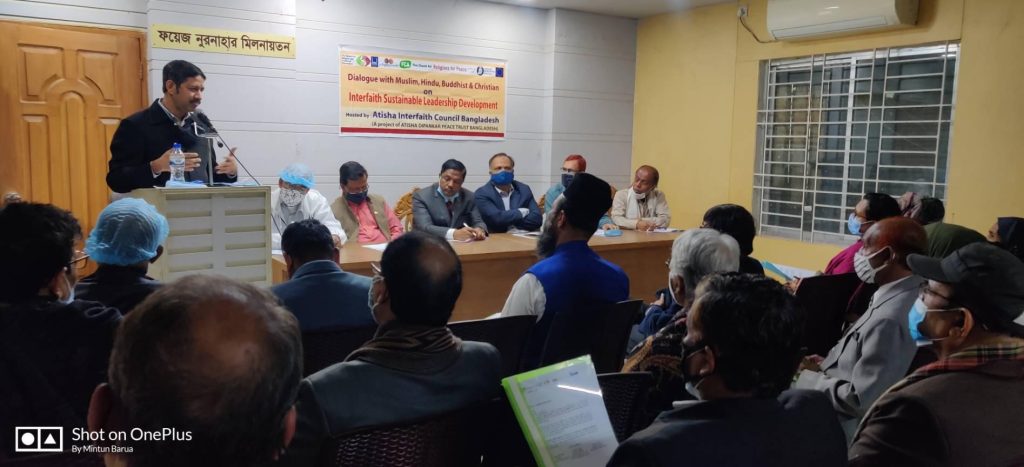
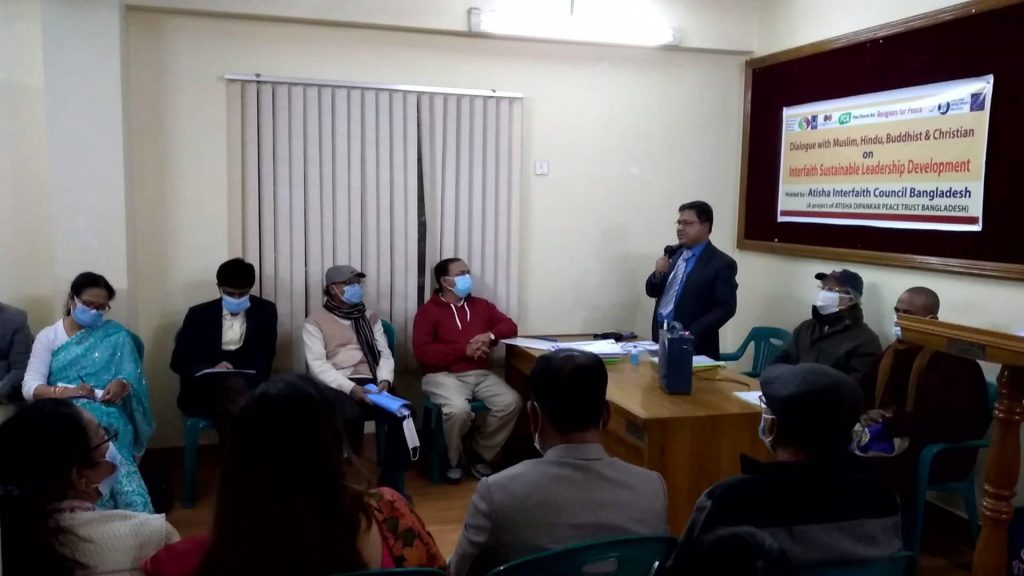
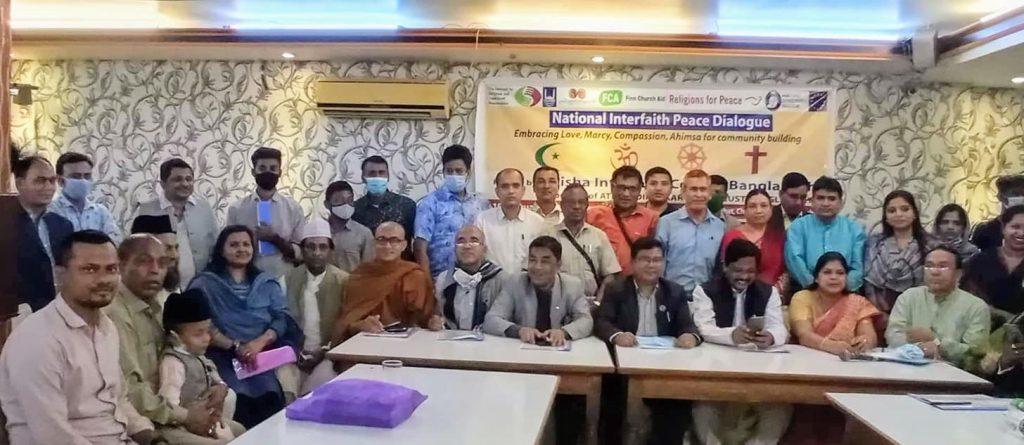
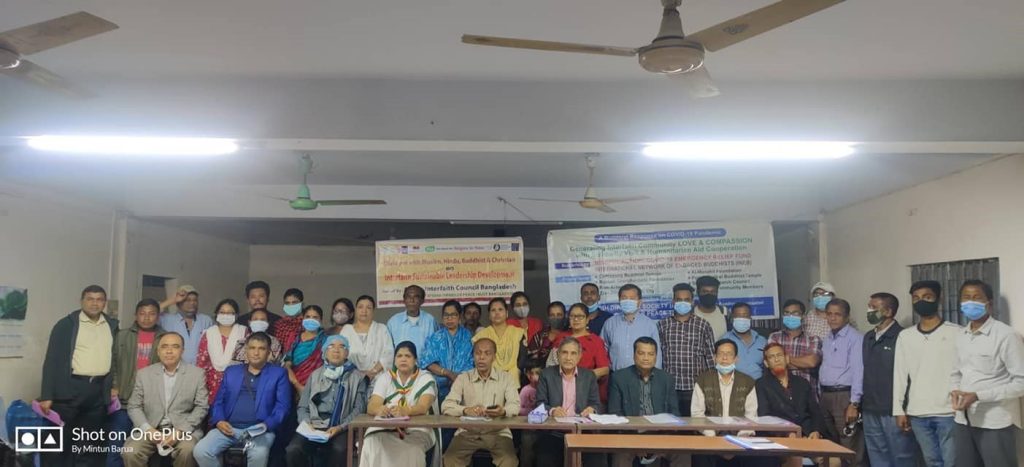
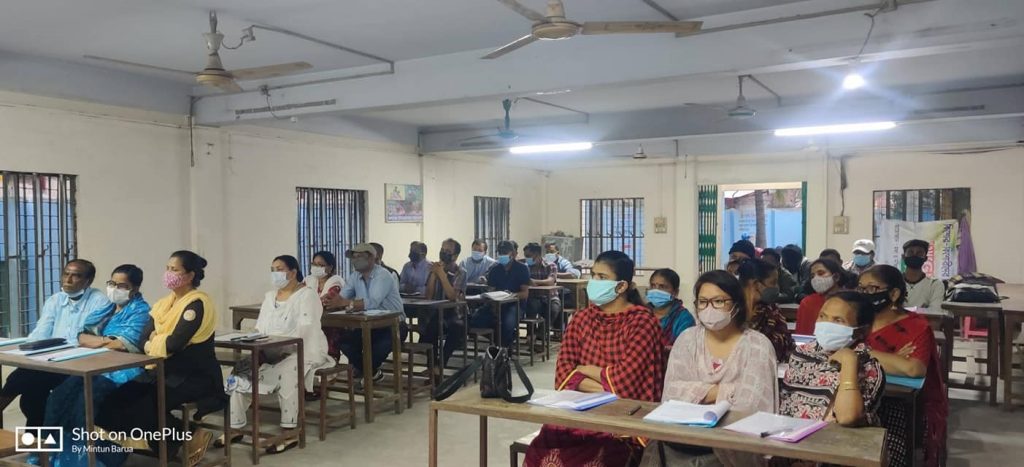
Sanat Kumar Barua, Coordinator-Atisha Interfaith Council Bangladesh


0 Comments